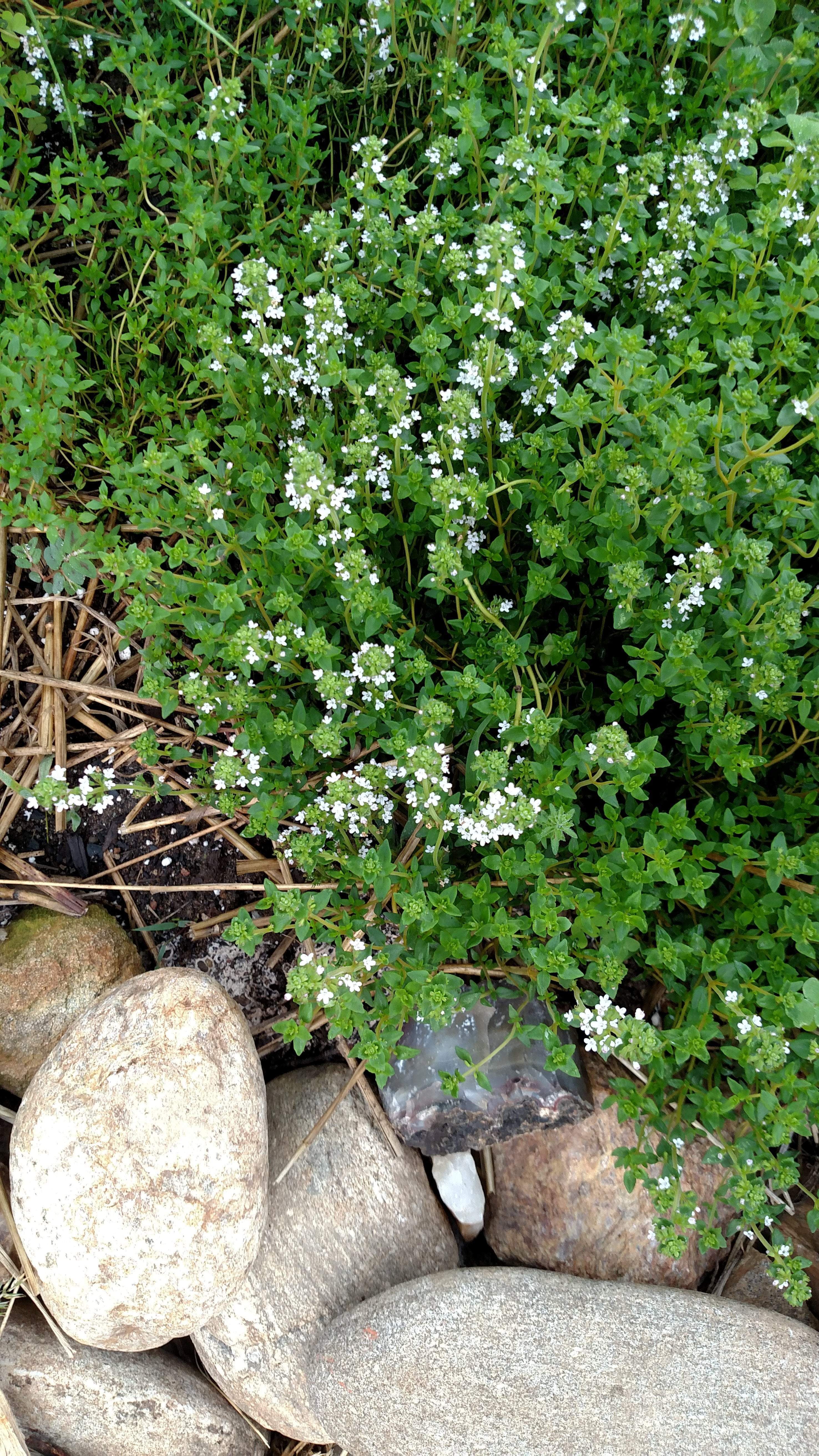Let’s talk culinary herbs!
Herbs bring a wonderful group of characteristics in to the garden. Often they are perennials and provide some kind of garden structure in the winter season. Additionally, they can be annuals that can be moved about from year to year depending on where you need some extra oomph. They lend an ancient and rich history to our space since many of them have been used by cultures around the world as medicine and food for thousands of years. Finally, herbs provide for our senses in a garden; they demand to be recognized for their widely varying scents, textures and uses.
Herbs are food, medicine, history and always, beautiful. It’s no wonder they’ve endeared themselves to humanity these many generations; we can’t help but keep them around.
Culinary Herbs of Choice
Culinary herbs are a wonderful addition to a garden. Perhaps you already have many of them in a window box or a bed outside your door. Dry, high quality herbs and spices are expensive, so growing your own group of culinary herbs for fresh or dry use is a great way to get thrifty at home. You can dry many varieties of herbs in a shady, dry place with lots of air circulation. You can also freeze them. I often frozen the leaves of basil, thyme and oregano for use throughout the winter. The frozen leaves provide flavor that, I think, is much closer to the fresh herb. Frozen basil leaves in particular shatter nicely when I crumble them into a sauce or other food.
If you like, you can easily grow herbs in pots and keep them indoors throughout the winter in a sunny window, lending green, fresh vegetation to your home and culinary endeavors.

Italian Large Leaf Basil
Culinary Herbs For Your Health
Many of the aromatic culinary herbs have health benefits. Thyme and oregano both have strong anti-microbial properties and can be eaten fresh, lightly infused in a tea or added to food at the end of cooking. Many herbs are renowned for calming an upset stomach or digestive system. In particular, gas and bloating, can be addressed by incorporating sage, fennel, anise, dill, cilantro, basil and rosemary into one’s diet. The seeds of dill, fennel, anise and coriander (cilantro) are particularly desirable for use in teas or eaten fresh, but stems and leaves also can provide relief.

Greek Oregano
How and Where To Plant an Herb Garden
Herbs require a sunny spot with at least 6 hours of sun per day as well as a well drained soil that is not overly fertile. Many of the aromatic culinary herbs are Mediterranean in origin and prefer a warm, dry spot. Herb spirals make good micro-climates for herbs because they spiral upward off the ground providing ample drainage at the top while providing more moist soils toward the bottom. The masonry of the spiral will hold heat in summer or winter thereby insulating the herbs and aiding in over-wintering.
If an herb spiral is not your thing, just make sure the roots of the herbs stay dry and are not planted in a place where water stands during rain events. Only lightly and occasionally use fertilizer, since heavy applications of nitrogen will cause lots of vegetative growth that will dilute the essential oils in the plant. The essential oils are what give herbs their powers and flavors, so higher concentrations are desirable.
Herbs lend themselves to container gardening because they deal well with heat and drought. This is especially helpful if the caretaker is less than punctual with the watering can. Growing in containers also allows you to bring your herbs inside for the winter.
You can also use herbs in ornamental gardens. Many of the culinary herbs boast beautiful flowers. In the case of nasturtium, borage and calendula the flowers are all edible and add beauty to salads, cocktails or teas.
Read more about our favorite edible flowers.
Starting Herbs From Seed
Herbs are easy to begin from seed. Many of the culinary herbs like dill, fennel, borage and cilantro (coriander) are best directly sown into the garden since they don’t thrive with transplanting. Others are easy to begin in small pots and transfer out of doors. They just need a high quality seedling mix, water and warmth (sun!) to grow. N.C. State University has a great list in table format of how to propagate herbs. It could come in handy when planning your summer herb garden. You can also just follow the directions on your seed packet to get started.
Herbs offer so much to us in health benefits, the enjoyment of our food and our spirits, and with their wonderful smells and flowers. They can be a part of every plant lover’s garden. We hope you take the plunge and begin to grow many of our fantastic herb varieties.

Cilantro Seed
Written by Sow True Seed blogger Megan Schneider
Information about the health benefits of culinary herbs was provided by Dr. Glenn and Dr. Marty Ingram at Through the Woods Natural Health. Find more information about their practice at https://throughwoods.com/ .


